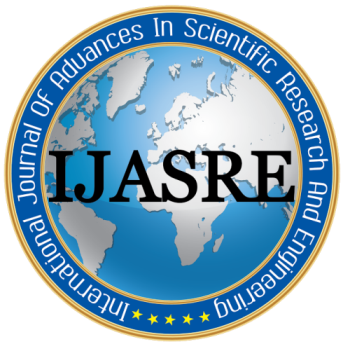Seismic Performance Evaluation of Existing Reinforced Concrete Buildings in Yangon
DOI:
https://doi.org/10.31695/IJASRE.2018.32727Keywords:
R.C Buildings, pushover analysis, fragility analysis.Abstract
Yangon is the most populated commercial city in Myanmar. It is located just about 50km from Sagging Fault, the major earthquake fault of Myanmar, at which the ground excitation is more frequent this year. Moreover, most of the existing buildings in Yangon are old and less performance to seismic shaking. According to census data record, R.C type residential buildings are the most popular types in Yangon. Thus, in order to mitigate the risk of lives and properties under upcoming earthquake, the disaster mitigation plan becomes the major issue to get awareness of the public. For this purpose, this study is aimed to analyze the three existing R.C buildings under different levels earthquakes in three townships (Tarmway, Pazundaung and Kyaukdadar) in which the population density is higher and the soil condition is worse than other townships. The selected buildings have three heights (3; 6; and 8-stories). The material properties of these existing buildings are obtained by certain tests on sites. The soil condition of the
existing townships is determined based on the bore logs test data of soil investigation reports. The performance of the buildings is then assessed with the ATC 40 and FEMA 356 building acceptance criteria. From pushover analysis, the capacity curves for each building in two directions of the earthquake are obtained. The modeling and analysis is done by ETABS 9 software. According to fragility analysis, this study results that these existing R.C type buildings can suffer moderate damage under moderate level and severe damage under severe level earthquake.
Downloads
How to Cite
Issue
Section
License
Copyright (c) 2018 Phyo Hein Kyaw, Khin Su Su Htwe, Hla Hla Htay

This work is licensed under a Creative Commons Attribution-NonCommercial 4.0 International License.







